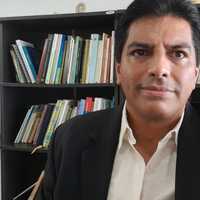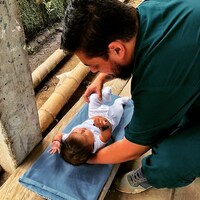World Physiotherapy-Awp Regional Congress 2022 Poster Presentation Guideline
Fecha de creación: 18/09/2023Tipología: Productos Resultados de Actividades de Divulgación Pública de la Ciencia.
- Detalles del producto
- Asociaciones
- Autores
- Objetivos de Desarrollo Sostenible
- Identificadores asignados (DOI/ISBN/ISSN)
Resumen del producto
El producto no tiene una definición para el resumen.
Abstract del producto
iii. Background: The agin, according with the World Health Organization (WHO) is an accumulation of molecular and cellular damage over time, which leads to a gradual deterioration of physical and mental abilities such as cognitive decline. This has an estimated prevalence of 15-20% in people older than 60 years, with an overall rate of 7.6% associated with age. Given its impact on quality of life, governments encourage early detection and intervention. One of the strategies used is the practice of physical activity, some authors affirm that it contributes to the control of cognitive deterioration in older adults and recognize it as a highly protective factor of cognitive functions in aging, constituting a promising psychosocial strategy.
iv. Purpose: To determine the effects of physical activity on cognitive impairment in adults older than 65 years.
v. Methods: A bibliographic search was carried out in the Elsevier, Scielo, ClinicalKey, Scopus, BVS, and PubMed databases; The MesH terms were included: Motor Activity, Aged, cognitive impairment, Cognitive Dysfunction”, and the combination of Boolean operators AND OR NOT. Articles published from 2005-2021 were selected, containing observational studies and systematic reviews, whose results contained elements that allowed answering the PICO question: What are the effects of physical activity on cognitive deterioration in adults over 60 years of age? . four reviewers extracted the data from selected articles into an Excel form and another two reviewers assessed the methodological quality with the STROBE, PRISMA and CONSORT instruments and the level of evidence of the publications with the Oxford CEBM.
vi. Results: 7 articles were included: 4 systematic reviews, 1 clinical trial, 2 cross-sectional studies from the pubmed, Scielo, Elsevier databases that met the inclusion criteria. The results of this review indicate that physical activity improves the cognitive functioning of the elderly, especially in executive functions and memory. Delays the severity of dementia, or decreases the rate of cognitive decline over time and an increase in visual search speed and perceptual motor speed.
vii. Conclusion(s): Physical activity is a broad strategy that helps stop and improve cognitive functionality in older adults and provides bodily, emotional, social and behavioral changes, which are related to the improvement of the patient's well-being and a better quality of life, both of the subject and his family environment, it is recommended to carry out personalized training according to the condition of the subject, his background and availability, it must be a regular and constant physical activity over time to see its very favorable effectsviii. Implications: Los resultados del presente estudio permiten al fisioterapeuta fortalecer su rol en el manejo de las funciones cognitivas del adulto mayor a través de la actividad física.































